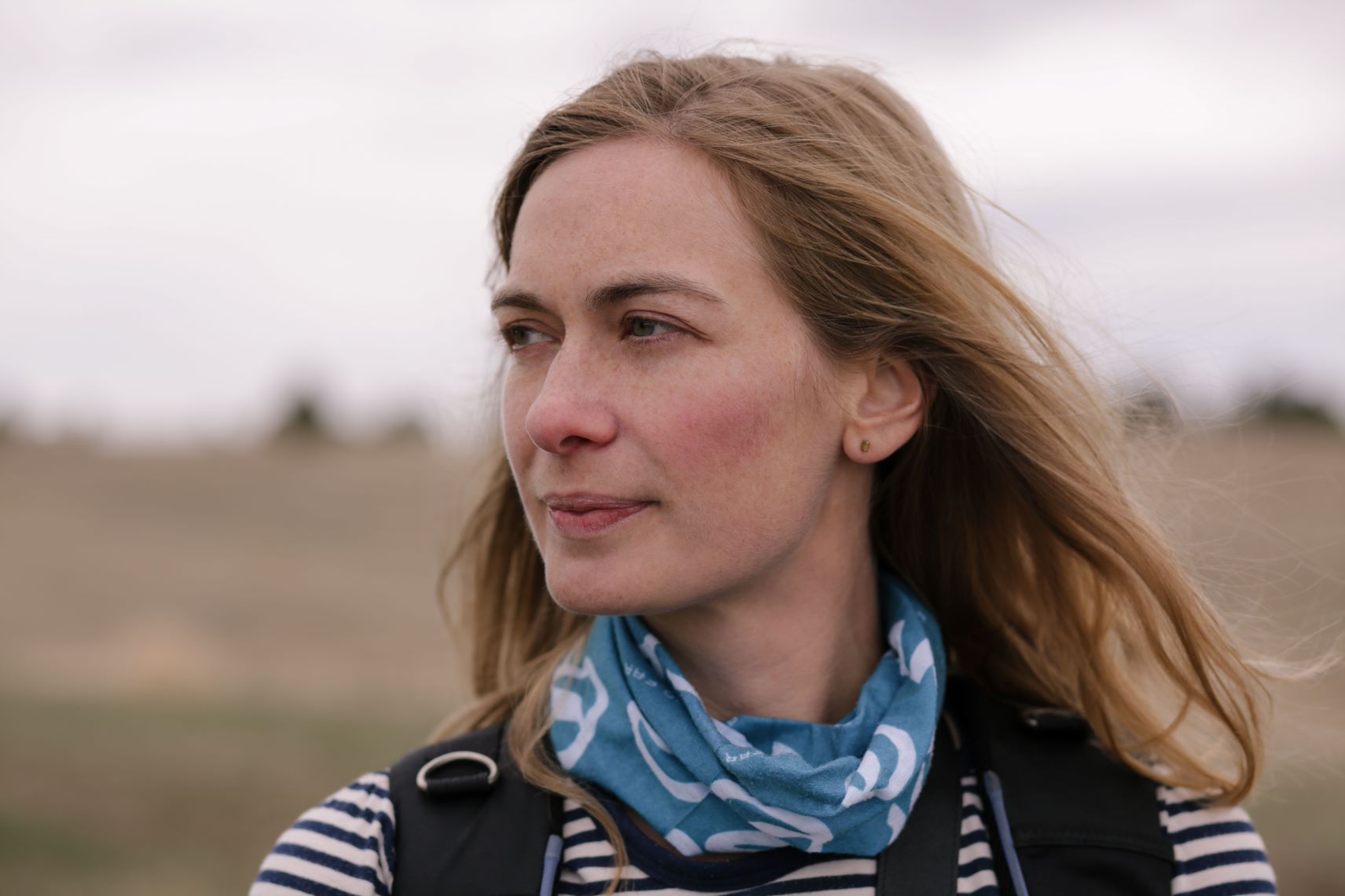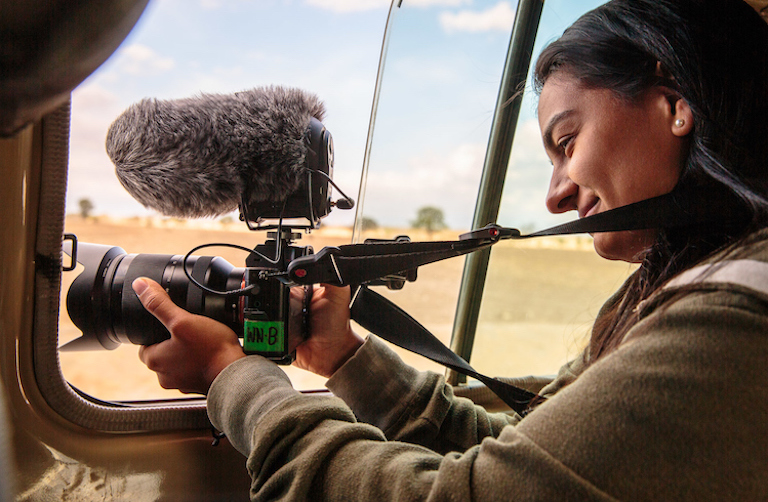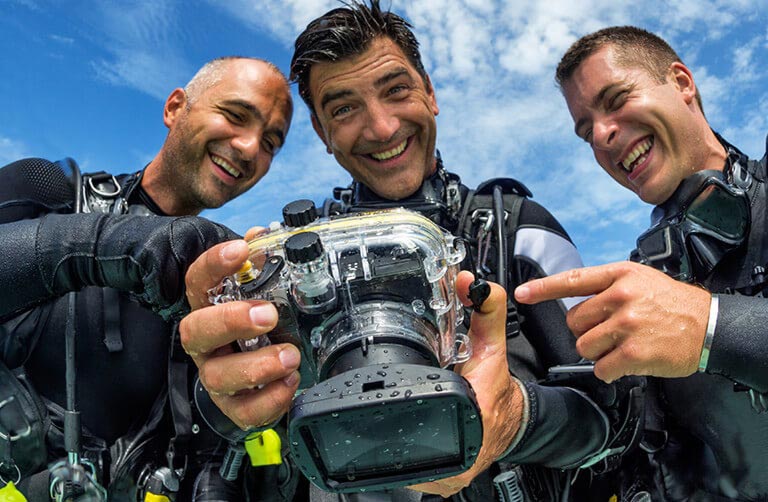Can filmmaking change the world? We meet with our Travel Film Scholarship mentor to find out.
 Photo © Allison Otto
Photo © Allison Otto
How did you learn to be a filmmaker?
I have a background black and white film photography and loved the creativity found in the darkroom. After college, I worked for a fashion photographer in New York and learned the digital work flow just in time to meet conservation photographer and force of nature Cristina Mittermeier. I worked for Cristina as her field assistant from 2007 to 2012 as well as for the organization she started, The International League of Conservation Photographers (iLCP). I first picked up a video camera in 2008 – it shot on tape and was a whole different beast to my still camera. Cristina is a Sony Artisan of Imagery and it wanted footage of her using its cameras. Cristina was on the phone with them, looked at me and said that her assistant could do the cinematography! So I learned how to film video in Madagascar on a borrowed camera – it was trial by fire. I’ve been learning to be a filmmaker ever since. In 2012, I started my own production company, Pongo Media Productions.
Why is conservation so important to you?
Conservation and climate change mitigation are both important and interesting because we can do something about it! We have the tools. Scientists are laying them out on a silver platter for us. Individuals are imperative in this fight but we also need to have a policy that holds big industries and companies accountable. We are no longer in an era when we can claim ignorance.
How can filmmaking and storytelling change the world?
Visual storytelling can help us understand the urgency of our changing climate. Films can help translate science, can transport you to locations you might never be able to visit, and most importantly reach people on an emotional level and inspire them to act.
Do you have a mentor? How has she shaped you?
Cristina Mittermeier was and still is my mentor, an inspiration and a dear friend. She has redefined the conservation communication landscape and continues to move the dial with her work. She started two very impactful conservation organizations, the iLCP in 2005 and Sea Legacy in 2014. Cristina not only shaped how I view the importance of storytelling but, from the beginning of my career, encouraged multidisciplinary projects and unusual partnerships encouraging people to work together to have a louder collective voice.
Is there any moment you have caught on film that has changed your perspective?
I’m not sure it was any one moment, but all of the collective moments with different cultures. I've learned that what I think is important and my value system is not necessarily the same as in other cultures. This is a very obvious statement, but when making a film with a goal to change behavior, it is important to appeal to your audience's values, not necessarily your own.
What has been the greatest moment in your filmmaking career so far?
Being a part of projects that actually do effect change. Some of these moments happened within iLCP, some with Pongo Media Productions, but all of them were a group effort. Awards and being recognized by peers is an incredible feeling, but if those films don’t do anything for the places, people and wildlife in the film then I have not accomplished my goal.
Is there a documentary that you wish you had made?
I recently saw When Lambs Become Lions directed by Jon Kasbe. What is so unique about this film is that it tells a conservation story in such harsh detail that the lines between right and wrong are blurred. Conservation is complicated, there are a lot of harsh realities that make making the right decision difficult for many people. I like that it wasn’t sugar-coated. It told both sides of a story and was unbiased.
How do you develop the story in your documentary films? Do you know what your story will be before you go in or do you let it come to you?
I have this conversation with many of my colleagues and the general consensus is that you make a film three times, once in pre-production, once in production and one in post-production. Meaning you do your research, you plan, storyboard and dream up a film, then, when on production, you are faced with challenges or gifts that change the course of the film. Then, once again in post you shape the most compelling story with the assets you’ve gathered, even if it means killing that initial scope of the film - aka killing your darlings.
How do you choose what projects to work on?
When choosing a project, it has to have two of the following elements: 1. The story and/or character is unique and compelling. 2. It benefits conservation. 3. It is well funded. I’d love to say I can take on all of the passion projects that I want, but even with a job I love, I have to pay the bills. Additionally, I also have a handful of colleagues that, if they call me up to work on a project, I know I’ll say yes to before even hearing about it.
What's the biggest misconception about what you do?
That all my travel is for vacation.
What's the biggest mistake you see novice filmmakers make?
This comes from personal experience. Coming from the photography sphere and moving into video I overlooked two major aspects of filmmaking. First, the importance of good audio – both in interviews and natural sound/ambient sound. Second, to hold shots longer than you think. Once I got to the edit I always wished I’d held the shot for 15 to 20 seconds longer, and let the action play through.
Best piece of advice for an aspiring filmmaker?
Take advantage of all opportunities to grow your skills. Don’t wait for the perfect job, take all the jobs offered to you so that you are prepared when the perfect project presents itself.
About Jenny Nichols
Harnessing the power of visual media to tell stories, Jenny works to create films that will act as tipping points in conservation campaigns. Jenny thrives on multidisciplinary projects and continues to collaborate with a dedicated community of photojournalists, filmmakers, writers, illustrators, scientists and conservation organizations. Jenny’s films have screened at HotDocs, Seattle International Film Festival, Brooklyn Film Festival, Telluride Mountainfilm, Banff Mountainfilm Festival, DC Environmental Film Festival and the Jackson Hole Science & Media Awards.
Related articles
Simple and flexible travel insurance
You can buy at home or while traveling, and claim online from anywhere in the world. With 150+ adventure activities covered and 24/7 emergency assistance.
Get a quote

6 Comments
Awesome interview and tips! And I definitely agree about how a film is made 3 times! As well as wishing that I held the shot longer in post production! As a previous winner of the film scholarship, I’m excited for you to mentor and share your passion and knowledge.. and to see where you take the scholarship with your interest in conservation that I also share!.. Good luck ????????
Thank you Jigar!
Congratulations on winning the film scholarship. I hope you continue to tell conservation stories! I'm very much looking forward to being the mentor for this years program and can't wait to see the short films that are submitted.
Jenny
Amazing lady! V keen to know why you choose Msia;r u based there?(I was born there)
Awesome interview, Thanks
Awasome interview thanks for the tips . And one thing i have to say and that's ......
Me job pilij